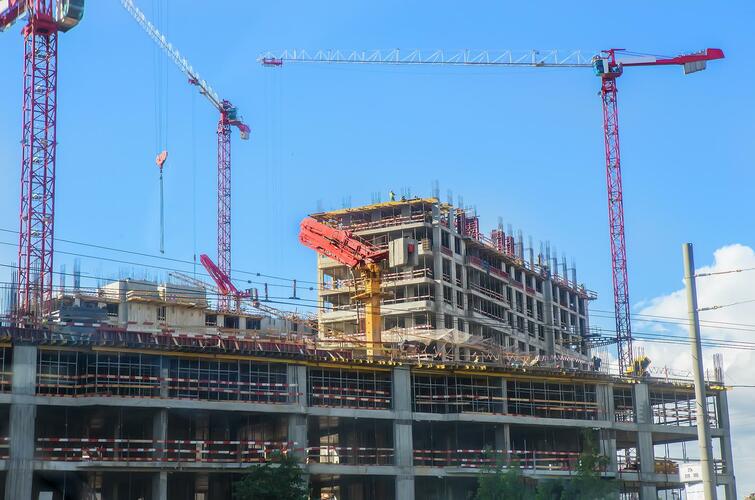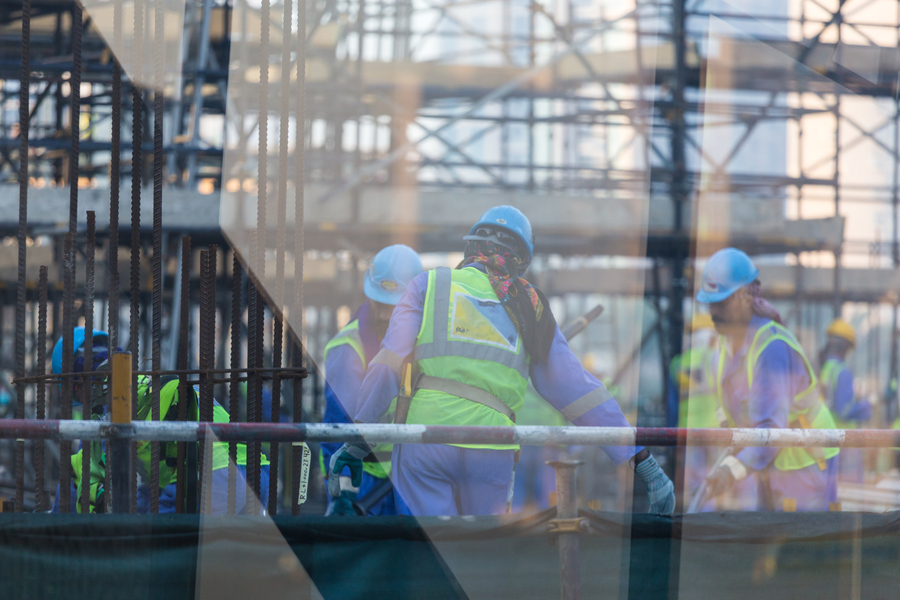Municipal law states that only the hours of 7 a.m. to 7 p.m., Monday through Friday, and 9 a.m. to 7 p.m., Saturday, are permitted for construction hours in Toronto. Construction noise is prohibited on Sundays and statutory holidays under the code.
In addition, the city recently passed a modification to the noise bylaw that forbids the use of “power equipment” like lawnmowers from 7:00 p.m. to 8:00 a.m., Monday through Friday. This comes in the wake of construction noise regulations set to be reinstated after being temporarily suspended in 2020.
However, these bylaws include a number of exemptions. For instance, nighttime labour on large transit projects is sometimes necessary to finish them on time. The continuous pouring of concrete, work requiring a huge crane, required municipal work, and emergency work that cannot be done during regular business hours are further exceptions.
Keep reading to find details on when construction is allowed to start and stop in Toronto, as well as general information on construction noise and its effects.
Construction Noise Bylaws In Toronto
The city’s Code permits construction noise in Toronto between 7:30 am and 7 pm. Monday to Friday 9 am – 7 pm on Saturdays. The city has also recently voted for an amendment to the noise bylaw which bans the use of power tools, like lawnmowers, from 7 pm to 8 pm Monday through Friday. All construction noise is prohibited on Sundays and statutory holidays.
The Bylaw also provides numerous exemptions. For example, transit works could run through the entire night to comply with project schedules. The exemptions are intended to keep important construction running smoothly.
Even private projects may receive a pass for noise. Anyone may request a permit to be exempt from a noise restriction or prohibition. This permit entitles the holder to create noise up to a maximum sound level of 85 dBA during a five-minute period when measured 20 metres from the source.
Citizens with such permits may surpass 85 dBA as long as the applicant complies with any requests made regarding the volume of sound by a Toronto Police Service officer or a municipal standards officer.
Impact Of Noise Pollution From Construction Equipment
Earlier this month the TPH reported the city’s average 24-hour noise level of 62.9 dB. Average daily levels in every test area varied between a lower 57.6 and a higher 76.8. A study concluded that 66% of the time the average level of noise in Toronto exceeded federal standards.
A single loud sound, such as fireworks, close to your ear might cause hearing loss. Or, more frequently, repeated exposure to loud noises can damage the ear over time, leading to hearing loss.
The time it takes for hearing loss to develop decreases with increasing sound volume. Conversely, the risk of hearing loss increases with exposure time. Constant construction noise as low as 70 dB can cause permanent hearing damage, depending on the frequency and length of exposure.
Chronic noise exposure can put certain groups at exceptional risk of hearing loss. For example, young children are at higher risk of getting hearing damage due to their inability to react properly to extreme noises. Adults who work around noisy machinery are also at greater risk.
How Do Other Cities Prohibit Construction Noise?
The ideal example of how to control noise in a busy metropolis is New York City. In fact, their noise code has won awards and has been praised by numerous non-profits and occupational health and safety organisations. Construction firms are required by New York City’s stringent noise regulations to reduce noise at their job sites.
It is unknown how frequently a noise mitigation plan will be requested from applicants seeking to extend construction hours in Toronto. The noise regulation in New York, meanwhile, mandates that contractors create a noise reduction plan before beginning work.
Every construction site must have on hand a copy of its noise mitigation plan. An inspector will stop by if noise complaints are lodged against the project. Construction project leaders are also required to focus their noise mitigation plans around the safety and comfort of nearby residents. This includes extending construction hours with permits.
How Toronto City Council Members Feel About Extended Construction Hours
The provincial government passed Ontario Regulation 130/20 during the COVID-19 pandemic, which restricted the City’s jurisdiction to forbid and control construction noise.
The legislation allowed noise to be created in conjunction with healthcare-related construction and services, including new facilities, additions, restorations, and the conversion of spaces that may be used as healthcare space, 24 hours a day, 7 days a week.
Seven days a week, noise from other construction projects was allowed from 6 am to 10 pm. After this regulation’s October 7, 2021, expiration date, the Noise Bylaw construction noise limitations will once again apply.
During the period of restriction, multiple Toronto City council members were critical of the restrictions, citing concerns about the safety and comfort of Toronto residents. Provincial parties also weighed in on the debate, with Ontario NDP representatives stating that “People are exhausted and distressed; many residents have been working from home during the pandemic, and have had no reprieve from the constant noise”.

How Construction Projects Are Expected To Change Going Forward
Fortunately, Toronto is making efforts to reduce noise levels for city dwellers. The city’s “Noise Team” is concentrating on preventative measures due to the high volume of complaints, like making noise mitigation plans a requirement of additional noise exemption licences.
In locations with a higher volume of noise complaints, the MSL office also uses sporadic noise enforcement pushes. The city’s anticipated review of current noise bylaws is expected to result in new regulations. Although it appears that the focus is on lowering vehicular noise, construction noise bylaws may also be impacted.
The city council has a responsibility to look into noise mitigation techniques for development projects in the Toronto region. There are short-term noise reduction options available that can assist muffle noises made by construction machinery. In the future, evolving rules and standards will encourage or even mandate the implementation of these solutions. However, being proactive now helps ensure that building projects stay on schedule while causing the fewest interruptions possible to locals.
That being said, if construction schedules are significantly disrupted by noise bylaws and complaints, it could affect many workers’ livelihoods. Construction projects in Toronto employ over 200,000 workers from the Greater Toronto Area.
At the end of the day, it is nice that the Toronto city council is taking action to try and balance the city’s construction needs with the comfort and safety of its citizens. Hopefully, they can successfully implement policies that have worked for similar metropolitan areas.
Final Thoughts
With construction restrictions returning to normal after the expiration of the Ontario regulation, noise levels in Toronto have come down significantly. However, the city remains fairly noisy during the day, and noise complaints have been steadily climbing as a result.
While the city council is aware of the issue, it is unclear whether or not their response will be effective in striking a balance between the city’s construction needs and the comfort of its residents.
Furthermore, there is no guarantee that the Ontario Government won’t impose similar restrictions in the future. Torontonians are urged to stay up-to-date on construction bylaws and to report any construction noise outside of permitted hours.









